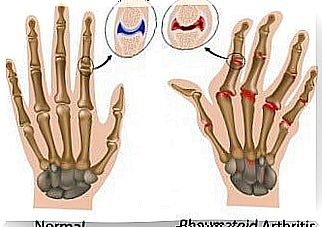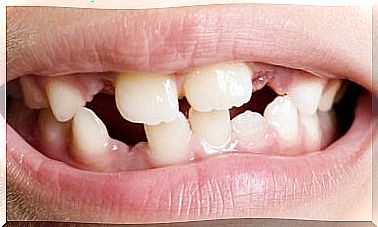Lack Of Sleep Could Be Related To Dementia
In the elderly, lack of sleep and low oxygen levels in the blood, as well as unhealthy lifestyle habits and other factors, may increase the chances of developing dementia.
In view of this, health professionals and researchers do not stop urging the entire population to review and correct all those habits that may interfere with quality of life and, above all, in terms of rest and nutrition.
However, most people do not pay enough attention to this issue and continue to ignore that the fact that lifestyle has a considerable influence on the alterations that arise in the body.
Therefore, those who do not maintain good sleep hygiene can develop disorders of this type and even conditions not only physical but also mental.
The study conducted in San Francisco

According to a group of researchers from the University of California and the California Pacific Medical Center Research Institute, it is believed that there may be a relationship between lack of oxygen during sleep and dementia. The approach is as follows:
Part of the study consisted of monitoring the sleep and oxygen levels of a sample of 461 elderly women. Variables such as:
- Number of excitations, per hour.
- Number of episodes of apnea and hypopnea (lasting 10 seconds or more) associated with a drop in oxygen saturation of 3% or more, per hour.
Among the 298 women who qualified to be included in the final sample, 35.2% were classified as patients with sleep-disordered breathing.
Later, when the sample was followed up, five years later, it was found that women who did not have respiratory disorders developed dementia or mild cognitive defects.
After adjusting for demographics, psychology, illness, and drug use, the researchers found that the odds of developing dementia or mild cognitive defects were higher (by 85%) in women with sleep-disordered breathing.
Although this study has served as the basis for many approaches, within the scientific community, the truth is that there is still no definitive conclusion on the subject. In fact, it is considered that it is necessary to expand the sample, among other aspects, in order to find a clear link between the lack of oxygen during sleep and dementia.
The finding of another study
According to another recently carried out study, lack of sleep as well as some health difficulties may be related to brain abnormalities very similar to those experienced by patients with dementia, in an early stage.
Within the main hypothesis, the researchers stated that those patients who suffer from sleep apnea are especially vulnerable when it comes to suffering brain injuries related to dementia.
The study itself consisted of evaluating a sample made up of 167 elderly men, up to the time of their death, six years later. As in the previous study, the sample’s sleep was monitored and oxygen saturation was measured.
Once they died, autopsies were performed in order to study the state of the brain and detect possible micro-infarcts, changes in brain tissue or other abnormalities.
The brains of individuals who had changes in their brain tissues, also had low levels of oxygen in the blood, had up to 4 times the risk of suffering from vascular dementia. Therefore, this study suggests that hypoxia could be a cause of why obstructive sleep apnea can affect cognition.
Confirmed: lack of sleep does influence

A new study carried out by a team of researchers from the Mayo Clinic points out that lack of sleep or disorders of this nature contribute to an increased accumulation of beta-amyloid ; the main component of senile plaques, found in Alzheimer’s patients.
Undoubtedly, this topic continues to fascinate the scientific community from all over the world, which is why research continues. Fortunately, every day we are closer to understanding the possible relationship between lack of sleep and dementia.









